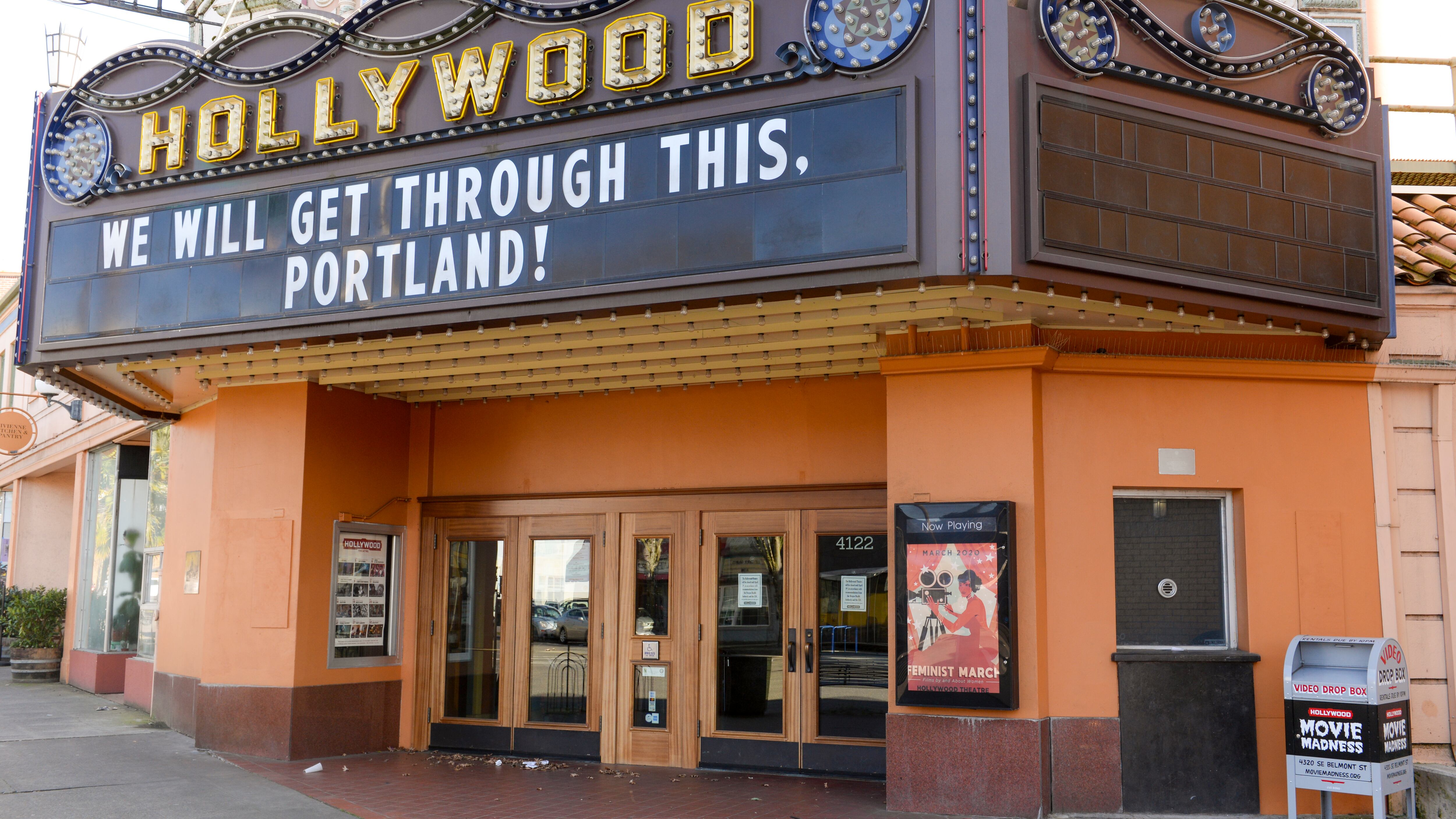WW presents "Distant Voices," a daily video interview for the era of social distancing. Our reporters are asking Portlanders what they're doing during quarantine.
Quarantine is not an ideal scenario for a film geek like Dan Halsted.
As a self-described "analog person," Halsted, the head programmer at the Hollywood Theatre in Northeast Portland, isn't a big fan of streaming, and most of the popular services don't have what he's interested in, anyway. So getting his hands on physical media he doesn't already own is a challenge.
Thankfully, Halsted also has one of Portland's largest collections of DVDs and video cassettes at his disposal. In 2017, the Hollywood bought Movie Madness, one of the country's few remaining video rental stores, which boasts of having thousands more titles than Netflix. The store is currently closed, but Halsted still has ways of checking stuff out.
"I give them a list in advance, and then they've been passing the movies to me through their metal security door, which kind of feels like I'm buying crack," he says. "But it totally works out."
In his professional life, though, Halsted has had to make some concessions to the digital era. The Hollywood has recently developed a streaming program featuring rare and classic films, among other special events—this Friday, the theatre will live-stream 1983's Shaolin vs. Wu-Tang, with Halsted providing commentary alongside RZA of the Wu-Tang Clan. Some original programming is on the horizon as well.
Halsted is adjusting. And soon, he thinks the mainstream film industry will have to adjust, too.
"Everyone's just gotten a slap of reality," he says. "Our overprivileged society is suddenly, vastly going to change. I think our art is going to reflect that."
What might that mean for movies? Halsted isn't sure, but he suspects fantastical, big-budget, intellectual-property-driven epics might not hold the same sway over audiences.
"One of the reasons I don't like those comic book movies is, to me, they seem [to reflect a] super-powerful America—'We're unstoppable!' And right now, we're finding out that's not true at all," he says. "The system is a total lie, and we're watching it all break down. How's that going to affect movies? It'll be interesting see."
See more Distant Voices here.

